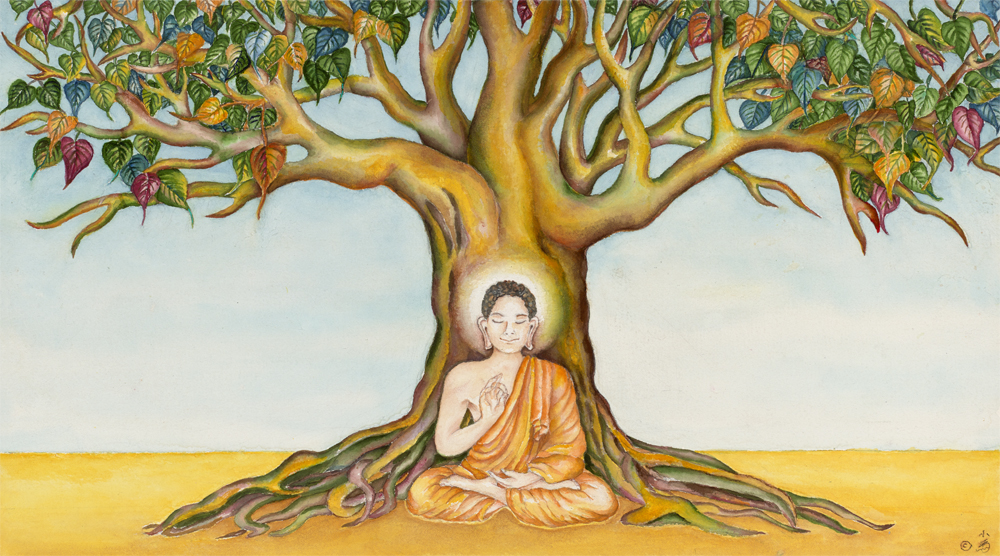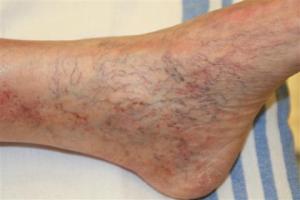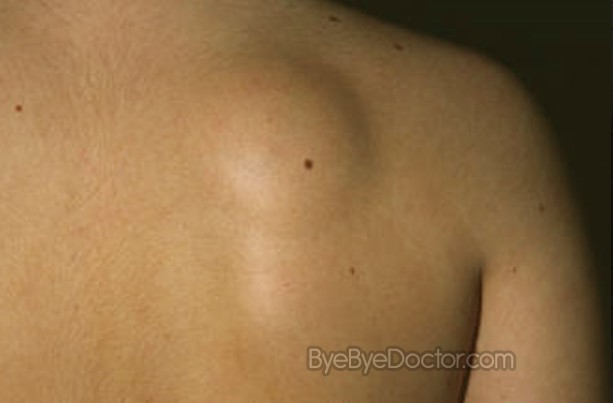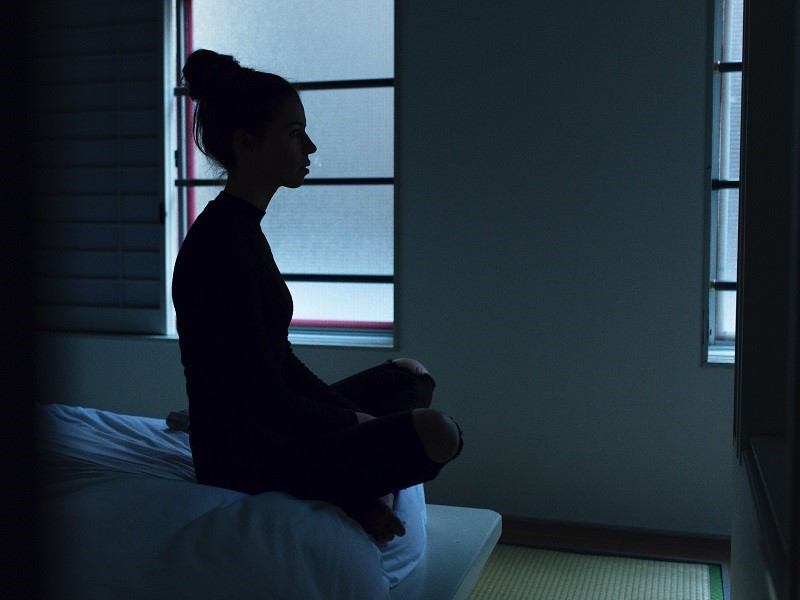
Reactivity, Impulsivity, Violent Tendencies: Releasing the Stomach’s Acupuncture Vessel
Many of us feel controlled, harassed and bombarded by our reactivity. Much of our life is spent in a state of emotional or mental agitation and “story.” Something happens, someone says something, and we immediately interpret it into a story, usually relating it unconsciously to something unresolved in our past. Then we have an emotional response which often expresses itself verbally or through behavior. In many cases our mental, emotional and behavioral response is excessive and destructive. Often built upon a made-up story that has little relation to the present moment, but is rather a playing-out of past traumas and disappointments, or future fears and anxieties.
How do we resolve such painful, counterproductive habitual states? Both Buddhism and Chinese Medicine have much to say on this subject. One of the best practices I know for working with habitual reactivity is described by Buddhist writer Pema Chodron. In her book When Things Fall Apart Chodron advises the following practice: when we feel triggered, rather than go into a story that brings about habitual reactivity, we should gather our attention, do our best to “drop the storyline and abide with the underlying emotion.” This is a form of Buddhist meditation where we practice neither expressing through acting out, nor by repressing. We do our best to “sit with” the underlying emotional and mental experience, as painful as it can be. As a type of Vipassana (insight) meditation, we do our best to become curious about our experience: how it feels, tastes, what it does to our bodies and minds. We sit with it, without acting it out or making it disappear, ideally so we can gain insight into it. Since we are dropping the storyline, we even forgo questions as to what the reaction is about and where it comes from. At least at the beginning. Instead we sit with the fiery, hot, uncomfortable, scary energy of the emotion and see what happens.
It may seem more satisfying to discharge, act out or lash out in the moment for some of us. For others repressing our emotional reactions may feel more appropriate and comfortable. Yet if we react in these ways we always remain a slave to our reactivity, unable to control, contain or live with it. Or we end up hiding it inside for us where it lurks and builds pressure, turning into resentment, depression or even degeneration.
Theorizing aside, I myself find it extremely painful, disruptive and destructive living as a person in a constant state of reactivity. It damages relationships, alienates people, causes much conflict and puts a barrier between myself and the rest of the world. While it feels good in the moment to shout, curse, call people names, get upset, offended and victimized, the longterm damage can be significant.
Chinese medicine says that reactivity is associated with the Stomach’s acupuncture channel, especially the acupuncture point “Stomach-40” located on the lower leg: called Fenglong or the Abundant Bulge. ST-40 is a Luo or “connecting” point which creates interaction and communication between the Stomach and Spleen-Pancreas, or the level of the raw emotions and the mind. Luo points also act as pathological holding vessels for the channels and organs. From each Luo point a separate channel is created that translocates unresolved or difficult physical, mental and emotional material into latency, or holding. This separate channel is called the Luo channel.
When Fenglong becomes “full” of energy, stimuli and heat, it manifests as reactivity where “our hearts become stronger than our heads” or we tend to react emotionally, unable to mentally control ourselves. The energy and stimuli goes into the Luo point and gets held in the Luo vessel where it remains, generating heat and pressure as it continues to fill and become saturated. This phenomenon shows that nothing truly goes away until it is dealt with. We can stuff it into a closet or drawer for a time, but soon that holding vessel becomes like a volcano ready to erupt.
Fullness of ST-40, the Stomach’s Luo channel can act like a volcano. When it erupts it can cause violent, impulsive and highly emotional reactions and behavior.
Luo channels act as vessels of containment for each organ system. The mediumship that contains these unresolved issues is the blood. The term “hot blooded” is descriptive for how the Luo Vessels, especially that of the Stomach’s Luo react. Anything unresolved being held in the blood will generate heat, which can cause reactivity, hyperactivity or sensitivity. When the Stomach’s Luo fills to saturation, the blood becomes “hot” which activates the emotions and creates hyper-reactivity, irritability and volatility. It becomes very difficult if not impossible to “sit with” one’s emotions; we feel as if we must discharge them.
The trajectory of the Stomach’s Luo vessel illustrates the route pathology can take. It begins at the point ST-40 on the lower leg, ascends through the groin, abdomen and chest, into the throat, and the top of the head where it crosses over the entirety of the head into the throat on the opposite side of the body. It is the longest of all the Luo vessels. The Stomach channel is said to be most abundant in blood and energy of all the channels in the body. It is the “sea” where all the resources and power for building and expulsion in the body is contained. Think of acid reflex or vomiting: strong, sometimes violent responses of rejection and expulsion, rooted in the stomach.
The other Luo Vessels manifest in other various modes of emotional, mental or behavioral expression. While still other Luo vessels operate more in modes of repression. The Chinese medical classics teach that there are two states to the Luo Vessels: fullness and emptiness. When the vessels are “full” this means issues contained within have reached a level of saturation, often creating “heat in the blood” and a type of acting out mentally, emotionally or through behavior. However, when saturation has been reached and the vessel overfills, it will empty which leads to states of repression, denial and hypo-activity.
The Stomach’s Luo Vessel for example manifests in states of hyperactivity when “full,” and a state of depression, confusion and futility when “empty.” The states are described in physical imagery: fullness is said to create “madness” or “mania,” while emptiness causes “weakness of the lower limbs”: the inability to walk and do and act in life.
The Kidney’s Luo vessel when full causes obsessive-compulsive behavior; when empty it causes paranoia. The Liver’s Luo causes hyper-sexuality, excessive horniness, and the tendency to get lost in fantasy. Emptiness causes pain during sex or genital, sexual dysfunction. At its worst the Liver’s Luo can cause a break from reality, schizophrenia.
The Luo vessels show physically how unresolved issues will manifest in the body. Issues contained in the Kidneys will go to the lumbar region to cause a dysfunction of the willpower, while issues in the Liver will go to the genitals to affect sexual function and the creative impulse. Issues trapped in the Stomach go to the head to cause “hot headedness” and hyper-reactivity, even insanity.
Luo vessel fullness and emptiness will also manifest physically on the surface of the body. Fullness often manifests as varicosity, spider veins or discoloration on the skin. Emptiness manifests as lipomas, cysts and growths on the skin.
The traditional treatment for Luo vessel issues is through needling the Luo point on the affected acupuncture channel as well as any varicosity along the associated trajectory as well as any cysts and lipomas. Often a small drop of blood will exude from the point, releasing the heat in the blood or the blood stasis causing the symptoms.
Reactivity due to fullness of the Stomach’s Luo vessel, acting as an expression of unresolved issues through heat in the blood can run the gamut in symptoms, from irritation, increased sensitivity and defensiveness to mania and madness: violent and destructive behavior. The severity of expression is often due to the chronicity or severity of the pathology within the Luo vessel.
There is often an obsessive aspect to the pathology of the Stomach’s Luo vessel. The Stomach has a close association with the Spleen-Pancreas, whose Luo vessel manifests in obsessive and habitual thinking states. Where the Spleen-Pancreas manifests more on the mental level, the Stomach’s Luo tends to manifest in acting out behavior
In addition to obsessiveness or pensiveness, the Stomach’s emotional pathology also includes vengeance: the wish to get even. Irrational and over-exuberant feelings of victimization are common to the fullness of the Stomach’s Luo, as is the wish to fight back. When the Stomach’s Luo is full a person will have a difficult time holding their tongue, and sometimes even their fists. They may impulsively feel they need to fight and destroy. The imagery for the Stomach’s Luo is “the heart overwhelming the head.” These are the situations where a person seems to lose their mind, lash out and then afterwards not completely remember what they have done, or be surprised that they acted so violently.
However, the violent extremes of the Stomach’s Luo are not the only problematic aspect of their pathology; simple over-reactivity can be damaging enough: when we cannot hold our tongue, or tend to lash out or act out, even benignly; it can still cause major disruption and disturbance to our lives.
The Vipassana practice to “sit with it,” neither repress nor act out, can seem practically impossible if a person has a saturated fullness of the Stomach’s Luo. Therapeutically we can help such people by reducing the heat in the blood by relieving the Stomach’s Luo of its fullness. After the pressure has been released, then the person will have an easier time working on the root causes of their Stomach pathology: why the Luo tends to fill in the first place.












No Comments